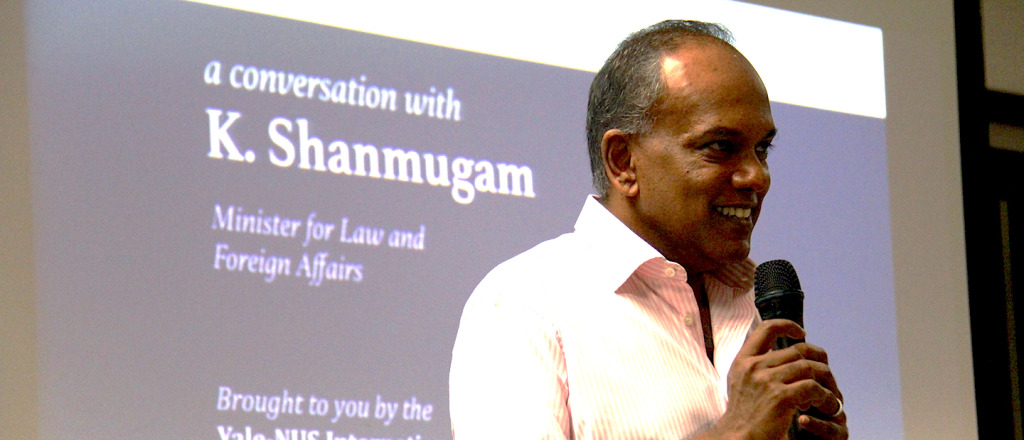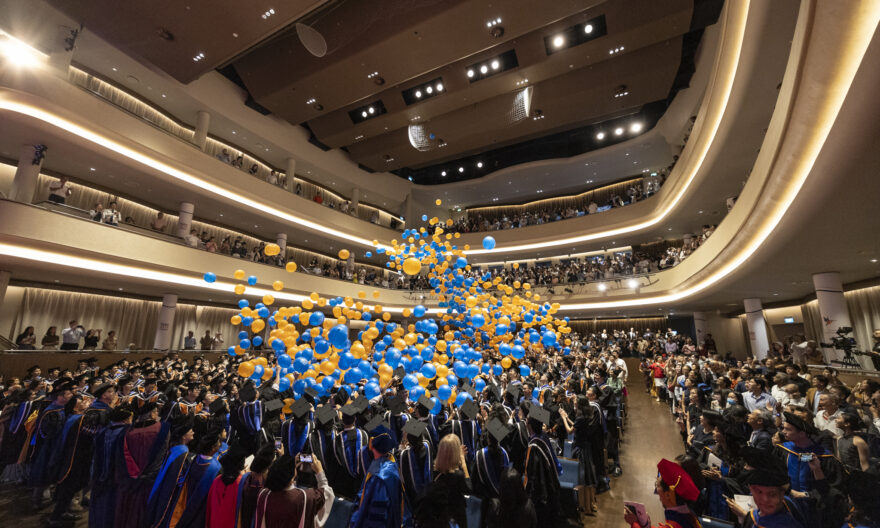Towards a “New Normal” in Singapore

What is the “right” kind of politics?
This question continues to ring in my head after our dialogue session with Singapore’s Minister for Foreign Affairs and Minister for Law, Mr K Shanmugam. The session opened with a Korean student expressing his admiration for Singapore’s rapid development and asking for the secret to our success. Mr Shanmugam answered that this was because of three reasons. Firstly, Singapore has had an outstanding leadership that conceived of long term plans; 20 to 30 years ahead. Secondly, we have been able to execute these long-term plans with a competent and incorruptible government. Lastly, we have had a supportive population that was willing to trust in their leaders.
Sometimes it takes an international friend to remind us of how extraordinary our achievements have been over the past 50 years. Our government has been able to plan for the long term with a stable political and social system. We should not take this stability for granted.
In response to a question by a local student on the “New Normal” in Singapore, with our increasingly pluralistic society, Mr Shanmugam expressed his concerns. He explained that Singapore’s success stems partly from a stable environment, which coupled with our excellent infrastructure and education system, has attracted a lot of foreign investments. This stability might be undermined by a more fractious political scene. One consequence of hotly contested elections could be the rise of politicians in the future who adopt populist policies with the next elections in mind rather than a sustainable long-term plan.
Mr Shanmugam also stressed that it was good for youths to have high aspirations. However, Singapore might have been “too successful, too fast”. This has caused a “problem” whereby young people are demanding more from the government and are desirous of a better life that cannot be accommodated, due to the physical constraints of Singapore. “Not everybody can have a car and a landed property,” he added.
Towards the end of the session, Mr Shanmugam presented some sobering statistics. Our population is ageing rapidly. By 2030, there will only be 2.1 working age citizens for each citizen aged 65 and above. This would be a drastic decrease from the current ratio of 6 to 1. A rise in social spending and a dip in tax revenues is likely as our population ages. He then asked the most pressing question of all: “Who is going to pay for this?”
Furthermore, Mr Shanmugam challenged us to think of ways to continue attracting investments in Singapore as regional competition becomes increasingly stiff, and costs and taxes rise in Singapore. He warned that due to population and land constraints, Singapore is actually like a spinning top on a narrow base and we are very vulnerable to any small changes.
Mr Shanmugam concluded that Singaporeans, and especially young people, should be concerned about these practical issues as our futures are at stake. He repeatedly made the pertinent point that we have to “get our politics right” in order to solve these future problems.He is concerned that we are taking prosperity for granted, even as we clamour for the “new normal” of a more consultative but fractious form of governance.
This session really struck a chord with me. There will be many daunting issues that Singapore must face in the future. Mistakes are especially fatal for a small and vulnerable country like ours. However, it is precisely because of these daunting challenges that we have to constantly adapt and change. We must not be afraid of challenging the status quo.
In this age where our society is becoming more diverse, educated and brimming with high aspirations, people are understandably more vocal and want a direct say in how they are governed. Technological advancements have also amplified ordinary voices and resulted in new ways of engaging and mobilising support. Our politics will have to adapt to this new situation and we should be more consultative so that all of us can collectively decide and work on what is best for us amidst the diversity.
Perhaps we should be embracing our active citizenry to solve the many complex problems we will be facing. By allowing everyone to have a stake in the decision making process, we can come up with comprehensive solutions that take into account the perspectives of our diverse society. Rather than emphasise our vulnerability, let us place the emphasis on strength and resilience, and trust that our society as a whole can collectively work towards our own betterment. I may be too idealistic but I truly believe that in the face of increasing diversity and complexity, the only way for us to prosper would be to continue to embrace change and adapt to the “New Normal”. The “right” kind of politics should trust in our collective wisdom to solve these problems and engage everyone to maintain the very unity and stability that have underpinned our prosperity for so long.
This article was also published in Affairs, a YIRPA publication.
Minister Shanmugam’s visit was part of Coffeehouse Conversations, a speaker series organised by YIRPA.





